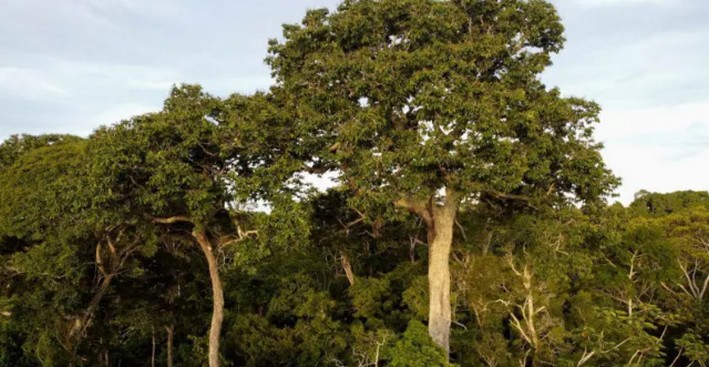Trees also absorb methane, the greenhouse gas, from the Earth's atmosphere.
That’s what an international team of scientists discovered, demonstrating for the first time how trees can remove this gas that contributes to global warming.
The finding, researchers say, could have major implications in the fight against climate change.
When trees carry out photosynthesis, their leaves absorb carbon dioxide (CO2) and store it as biomass in their trunks and branches, providing long-term carbon storage.
But this new research now reveals another key climate benefit of trees: the microbes living in their bark can absorb methane at a scale equal to or greater than soil, another major methane sink (or removal process).
As scientists assert, achieving significant methane reductions in the atmosphere would have a rapid and substantial effect in combating global warming.
More Potent Than CO2
Methane is the second most abundant greenhouse gas after CO2 and accounts for about 30% of global warming since pre-industrial times.
Over the past two decades, methane concentrations in the atmosphere have been rising rapidly, primarily due to human activities.
However, while CO2 can persist in the atmosphere for hundreds of years, methane lasts about 10 years.
"This short atmospheric lifespan means any change in methane sources or the processes that remove it from the atmosphere (known as methane sinks) can have rapid effects," explains Vincent Gauci, a researcher at the University of Birmingham’s School of Geography, Earth, and Environmental Sciences and lead author of the study.
"If removal is enhanced, this could be a quick climate achievement that helps mitigate escalating climate change."
Methane Removal
Most methane emissions are removed through atmospheric processes.
But soils are full of bacteria that absorb the gas and break it down for energy.
Soil was thought to be the only terrestrial methane sink, but the research showed trees can be just as important—or even more so—for gas removal.
For the study, researchers analyzed trees from tropical, temperate, and boreal upland forests.
Specifically, they took measurements in tropical forests in the Amazon and Panama; temperate broadleaf trees in Wytham Woods, Oxfordshire, UK; and boreal coniferous forests in Sweden.
This is a serious problem for Earth's climate because methane is 28 times more potent than CO2 at trapping heat in the atmosphere.
They found methane absorption was strongest in tropical forests, likely because microbes thrive in the warm, humid conditions found there.
On average, researchers say, the newly discovered methane absorption adds about 10% to the climate benefit provided by temperate and tropical trees.
Global Contribution
By studying methane exchange between the atmosphere and tree bark at different heights, they demonstrated that while trees likely emit a small amount of methane at ground level, from a couple of meters upward, the direction of exchange reverses, and atmospheric methane is absorbed.
Additionally, to determine whether this process had global significance, researchers used a technique called terrestrial laser scanning to calculate the total surface area of forest tree bark worldwide.
They found that if all the world's tree bark were laid out flat, it would cover the entire land surface of the planet.
Their preliminary calculations indicate the total global contribution of trees ranges between 25 and 50 Tg (million tonnes) of methane each year, with tropical forests making the largest contribution.
"Potentially, this represents a vast area for gas exchange between tree bark and the atmosphere, but this mechanism is still poorly understood," notes Professor Gauci.
While researchers emphasize that removing carbon from the global economy is key to tackling climate change, this ability of trees to absorb methane offers another nature-based tool to address the global climate problem.
Professor Gauci explains there may be new ways to enhance methane absorption, such as selecting trees particularly effective at removing the gas or modifying microbial communities in tree bark.
He also states that greater incentives could be given to nations to preserve existing natural forests and prevent further deforestation.
"The main ways we consider trees' contribution to the environment are through absorbing carbon dioxide via photosynthesis and storing it as carbon," says Professor Gauci.
"However, these results reveal a remarkable new way trees provide a vital climate service."
Source:BBC.com







Comentarios (0)
No hay comentarios aún. ¡Sé el primero en comentar!
Deja un comentario